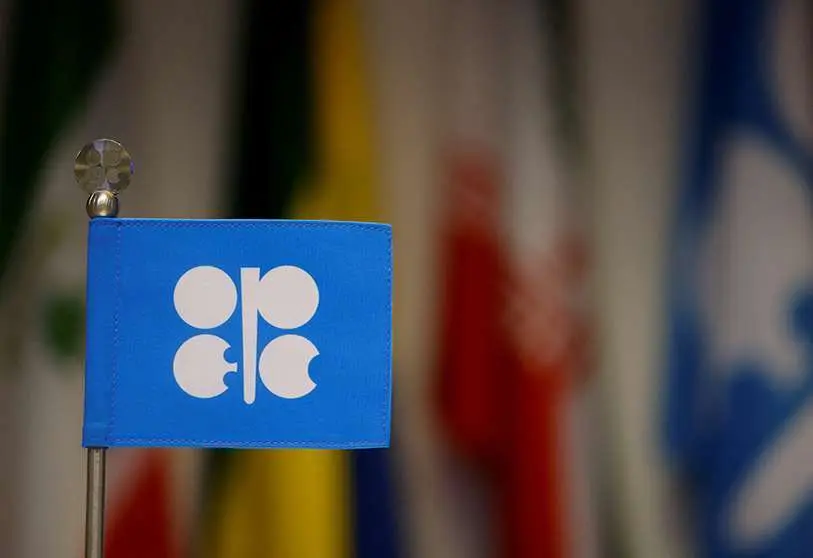OPEC+ calls for increased investment in the oil industry

Russia's invasion of Ukraine has put the continent's energy security at risk, affecting the global economy as well. As a result of the war, the price of oil and gas, as well as their derivatives, have risen significantly, leading many governments to consider energy alternatives that can meet these new challenges, such as renewable energies. At a time when environmentalism and sustainability are gaining momentum, businesses and governments see clean energy as a good option to address the energy crisis caused by rising fuel prices, largely as a result of the war in Ukraine.
However, these attempts to boost renewables clash with the plans of the Organisation of Petroleum Exporting Countries (OPEC+), which is calling for increased investment in hydrocarbons. Haitham al-Ghais, secretary general of OPEC+, urged countries and companies to invest more in the oil industry to meet "the world's future energy needs", as reported by Bloomberg.

Al-Ghais stressed that climate policies must be more "balanced and fair". Furthermore, according to the Kuwaiti, OPEC+ "remains committed to the stability of world oil markets", but "must work for an orderly and comprehensive energy transition that helps ensure energy security for all".
Since the outbreak of the war in Ukraine, OPEC+ - an organisation of which Russia is a member - has been embroiled in several controversies over decisions related to oil production. In October, the energy cartel agreed to recall production by 2 million barrels per day, despite high prices and calls from the West to increase output.
Al-Ghais' statements came at the Egypt Petrol Show (EGYPS), a summit held in Cairo this week under the theme "North Africa and the Mediterranean: supporting sustainable global energy supply and demand", where decarbonisation, the transition to renewable energy and energy security were discussed.

In the Egyptian capital, Al-Ghais also called on all those involved in global energy markets to "look at the big picture", saying the industry had suffered from "underinvestment" for several years. "500 billion dollars of investment is needed annually until 2045," he said.
In this regard, the OPEC+ secretary-general stressed that the upcoming COP28 climate summit in the United Arab Emirates scheduled for later this year "will serve as a new opportunity to explore inclusive, sustainable and consensus-based solutions to climate change".
Al-Ghais' comments are in line with those of other world leaders or companies in the sector. Despite the growing popularity of renewable energy, fossil fuels still play a key role in the energy sector. Even US President Joe Biden has admitted that the world will need oil "for at least another decade". Across the Atlantic, companies such as Britain's Shell have announced that they will stop increasing spending on renewables, while BP has stopped reducing its oil and gas production.

Sultan Ahmed Al Jaber, CEO of the UAE's national oil company ADNOC, said hydrocarbon producers "must be at the forefront of the climate talks if the world is to make the transition to cleaner energy while ensuring that fuel prices remain affordable". Al Jaber has been appointed as chair of the next climate summit.
For its part, Saudi Arabia, a leading OPEC+ member, sees the current energy crisis as largely the result of declining hydrocarbon investment, a view shared by other oil-producing countries.
Amin Nasser, CEO of the Saudi Aramco oil company, stressed that among the "root causes" of the current crisis is "the continued lack of investment in the hydrocarbon sector at a time when alternatives to fossil fuels are not yet available".

Nasser acknowledged that the war in Ukraine has impacted energy markets, "but it is not the root cause" of the crisis. "Unfortunately, even if the conflict stops, as we all hope, the crisis will not end," he added.
According to Nasser, the energy crisis in Europe has shown that "alternatives are not ready to bear the heavy burden of global demand". "In fact, the world will remain dependent on oil and gas for the foreseeable future, particularly in sectors such as heavy transport, heavy industry and power generation," he remarked at the Saudi Arabian Capital Market Forum in Riyadh.
At the EGYPS, in addition to addressing decarbonisation and the transition to renewable energy, another central theme was energy cooperation between Europe and the countries of the region.
In this regard, the Egyptian Minister of Petroleum and Mineral Resources, Tarek El-Molla, stressed that Egypt and Africa's relationship with the European Union, as well as with other international organisations, is key to promoting the energy transition, leaving behind fossil fuels and promoting renewable energies that lay the foundations for decarbonisation. For her part, the European Commissioner for Energy, Kadri Simson, has stressed the need to diversify energy sources in order to ensure energy supply in any situation, as reported by EFE.

To achieve this diversification, Brussels has reached agreements with new energy partners such as Azerbaijan, while other countries on the continent are looking to nations such as Algeria and Qatar. Egypt is also emerging as a key ally in this regard, becoming a regional energy hub.
Last year, the EU, Egypt and Israel signed a Memorandum of Understanding whereby Israeli gas will be transported to Egyptian liquefaction plants before being supplied to Europe. "We hope that, with the help of this MoU, Egypt will be able to maintain the relatively high volumes of liquefied natural gas (LNG) that it delivered to Europe last year," Simson said in Cairo, according to Reuters. El-Molla said Egypt expects to produce around 7.5 million tonnes of LNG this year, following the trend of 2022, when it shipped 80% of its LNG to Europe.








